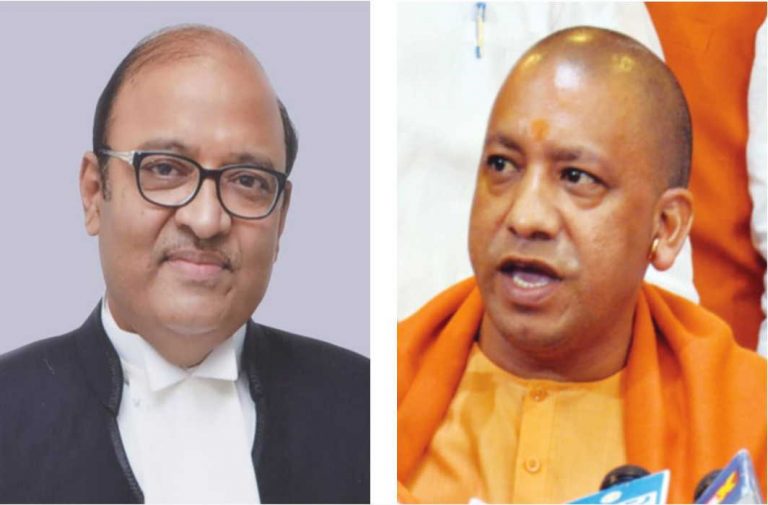
Another Judiciary-Executive tussle has erupted, this time over the conduct of exams for subordinate judiciary in Uttar Pradesh
~By India Legal Bureau
In another spat between the Judiciary and the Executive—this time over the Uttar Pradesh Judicial Service Exams—the latter has put its foot down and rejected a request from the former. This is the first time that such a request has been sent and rejected, said sources.
Judicial Service Exams are held in May across the country, and while in some states, it is conducted by respective High Courts, in others, it is conducted by the State Public Service Commission. In UP, it is conducted by the UPPSC.
However, recently, the chief justice of the Allahabad High Court, Justice Dilip Babasaheb Bhosale, sent a letter to the Yogi Adityanath administration asking that the conduct of the exams be transferred to the High Court. That would have enabled the Court to have total control over all civil judges’ and judicial officers’ appointments. As of now, they are selected through online exams. Approximately 300 such officers will be selected.
India Legal has learnt from sources that within a week of receiving the letter from the chief justice, the UPPSC (read the government) wrote back, rejecting the idea.
As of now, the UPPSC notification, asking for online applications for the “2018 UP Judicial Service Civil Judge (Junior Division) Examination 2018 (Pre-Mains Exam)” stays, but there is a rider in the notification.
It says: “UPPSC Civil Judge Exam will not (be) conduct(ed) on 13 May, 2018. UPPSC has still not received Requisition regarding Vacancies. After Receiving Details of Vacancies, Online Application will start.”
A government notification (a news item) alongside gives further insight into the impasse. Explaining why the exam could not be held on May 13 as scheduled, it says that it was supposed to get details of the vacancies by January 15. However, as the details were not received, this exam is being postponed. While this has no direct bearing on the spat with the Judiciary, it shows that there is some communication gap.
The eligibility criteria of the candidates for the pre-exam makes it clear why a court would want to conduct the same. It says (among other things) that candidates “must be a Bachelor of Laws of a University established by Law in U.P. or any other University of India recognized for this purposes by the Governor”, or “Must be an Advocate enrolled under the provisions of the Advocate Act 1961 or a Barrister of England or Northern Ireland or a Member Faculty of Advocates in Scotland…”
These candidates after selection will be directly involved in dispensing justice in courts and it is not surprising that the court wants to be involved in these exams.
With the oft-proposed National Judicial Appointments Commission in limbo, High Courts have this cumbersome responsibility. In instances where they directly conduct the recruitment to lower courts, the judges themselves set the questions and supervise corrections. And the person in charge of all this is the registrar who has a small workforce at his disposal.
Last year, nine High Courts opposed a proposal to have an all-India service for the lower judiciary. Eight sought changes in the proposed framework and only two supported the idea. But it is clear that most of the 24 High Courts want control over the subordinate judiciary.

